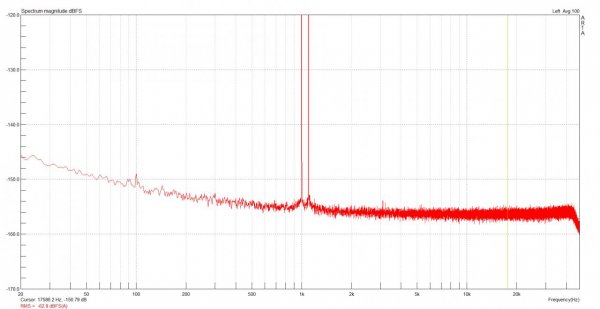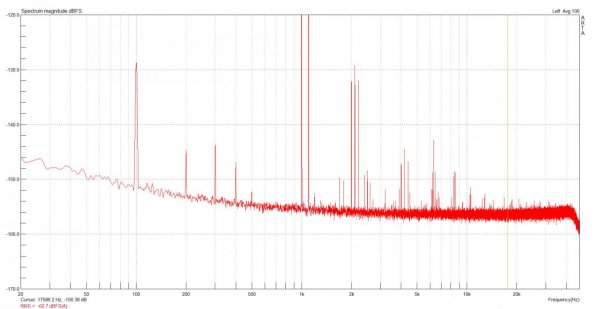Hi Bib
Really interesting. I have just looked at the other sites you published the test on (i deliberately didnt prior to casting my vote) and see that out of 27 votes 19 (70%) thought A2 was the no jitter track. Im no statistician and this wasnt the most scientifically rigorous of tests (bit of fun really), but it would seem to suggest that even though they were wrong, people fairly consistently thought they could hear something different between the two tracks. There was something people fairly consistently associated with track 2 as being better.
What did I hear? Well, in track 2 some of the lower Harpsichord registers there seemed a little more warmth at times, and there was an emphasis on some of the high frequencies.
I suppose if you went on this poll you would conclude people can hear the effect of jitter, but whether they can accurately identify it maybe not !They seem to like it !
Computer Audio
Track "A1" 4 26.67%
Track "A2" 9 60.00%
I am not sure to hear differences 2 13.33%
Next
song "A1" 0 0%
song "A2" 6 100.00%
I'm not sure to hear differences 0 0%
Well if there were only 2 choices, 19 of 27 is where you cross the 5% likelihood of this being chance. However, having the choice of no difference alters that. Plus on one of the sites there were two backwards by mistake votes. So your 19 becomes 17 of 27 choosing jittered sound.



